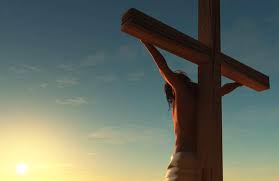This Sunday, the lectionary invites us to ponder Luke 13:31-35. The English Standard Version supplies the heading “Lament over Jerusalem.” The speaking characters are Jesus and some Pharisees.
Verse 31 begins with “At that very hour.” Luke begins with these words because he wants us to connect what follows with what Jesus said earlier. What he said earlier is terrifying.
The earlier verses are a section to which the ESV supplies the heading “The Narrow Door.” In those verses, Jesus speaks of judgment.
He speaks of people who, on the Day of Judgment, will knock on a door, and say to him, “Lord, open to us. We ate and drank in your presence, and you taught in our streets.” But Jesus won’t let them in. Instead, he will let them end up in a place of sadness and pain.
Jesus also says people will come from every part of the world, and will join a grand feast, with him. For them, it will be a happy time.
Then with the words “At that very hour,” Luke tells us that some Pharisees came to Jesus.
They warned Jesus to leave that place. Because Herod (Agrippa) wanted to find him and kill him. Luke doesn’t tell us where they said he should go. They probably just said he should leave the territory ruled by Herod.
Jesus responded strongly. He told them to take a message to Herod. He called Herod a “fox.” “Fox” is a label for people who are cunning, evil.
Jesus message was that he was working to his own agenda, his own travel itinerary, not theirs or Herod’s. He had work to do. He had to heal and cast out demons, then arrive in Jerusalem.
Why only healing and casting out demons? Why isn’t preaching included? After all, Luke speaks much about Jesus’ preaching. I think because he wants us to see that Herod snatched up John because of his preaching, but his interest in Jesus was spurred by his exorcisms and healings.
Jesus had work to do. And he had to do it on the road to Jerusalem. Why Jerusalem? Because it was the city which set the agenda for the nation. It was where so-called right behaviours and beliefs were defined. Therefore, it was also where a prophet could be sure he would be killed.
Jesus wished that was not the DNA of Jerusalem. He said:
“O Jerusalem, Jerusalem, the city that kills the prophets and stones those who are sent to it! How often would I have gathered your children together as a hen gathers her brood under her wings, and you were not willing!”
Jesus spoke those words in the voice of God, God who so often likened Israel – for Jerusalem represents Israel – to a disobedient child or wife.
God set ethical demands on Israel. Demands related to justice. Demands opposing oppression. The leaders, both political and spiritual, failed to do what God demanded of them. They had their own ideas about right and wrong. They substituted their ideas for God’s. They committed idolatry.
They silenced the prophets who reminded them of God’s demands. They killed the prophets. Publicly. Often by stoning. I suppose they “tested” people by seeing whether they would join their stoning parties. Because anyone those who refused to join would reveal whom they sided: and suffer the consequences of loss of patronage, wealth, and income.
Jesus was blunt in what he said about Jerusalem, the place where he was headed for execution; for execution instigated by leaders who claimed to be God-appointed. He called them a “house.” He said,
“Behold, your house is forsaken.”
Forsaken, abandoned by God. He spoke a word of judgment. By God. He announced destruction. But he didn’t stop there. He added,
“And I tell you, you will not see me until you say, ‘Blessed is he who comes in the name of the Lord!’”
What moment, what event in history, was he pointing to, with the word “until”?
Was he referring to the day he entered Jerusalem riding a donkey, when many in Jerusalem welcomed him with that blessing from Psalm 117, and shouted “Hosanna”? The day we celebrate every year as Palm Sunday?
Or was he referring to his return, in the future, to the physical city of Jerusalem? An event we anticipate as his “second coming”? An event which comes just before the Day of Judgment?
Palm Sunday went well for Jesus. He was welcomed as a king. But what followed was his betrayal and crucifixion, on Black Friday. On order not of Herod, but of Pilate.
Jesus didn’t choose his executioner. He chose the city of his death. He chose the city which played the tune Israel danced to. The city which killed prophets. Pilate was the governor. And therefore, the executioner.
In the 10th century, the geographer Al-Muqqadasi, approved someone’s witty comment that Jerusalem was “a golden bowl full of scorpions.” Anyone who follows the news will agree it’s still a good description.
Will Jerusalem become what its name means, “city of peace,” before Jesus returns? I don’t know. I can only say that with God, nothing is impossible.
Peace be with you.
To learn more about Rama, click here.


